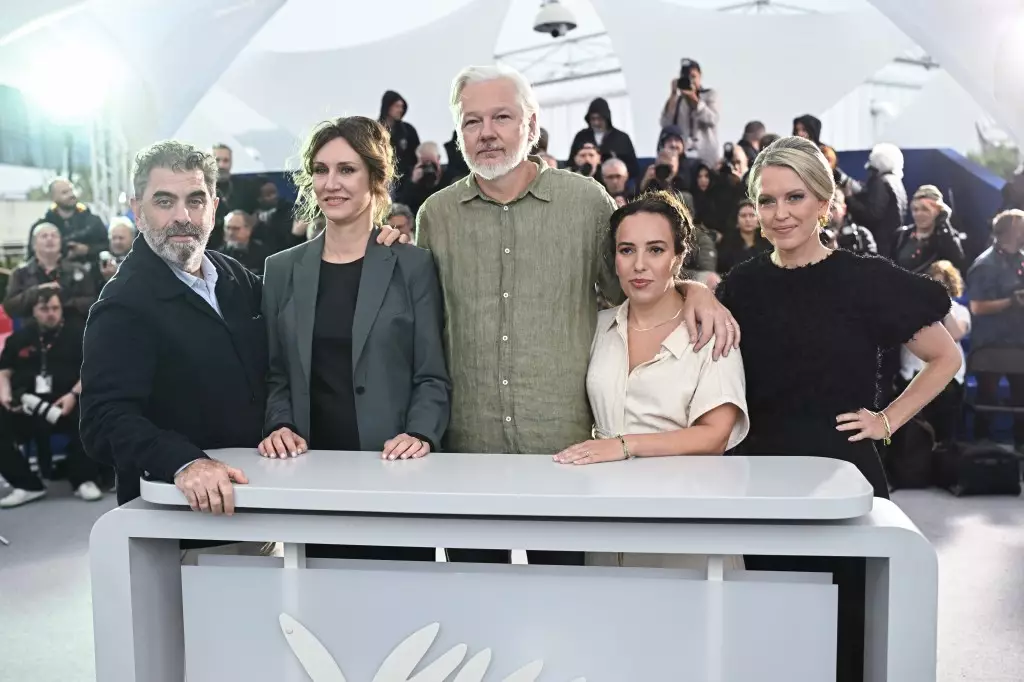In an era defined by the struggle for transparency, the silence of Wikileaks for over five years raises questions about the health of democracy and the lengths that governments will go to protect their secrets. Julian Assange, the controversial figure behind Wikileaks, has become a symbol of both whistleblowing and state-driven repression. Filmmaker Eugene Jarecki’s invocation of Assange’s plight in his documentary, *The Six Billion Dollar Man*, sheds light on a troubling narrative: that the United States has seemingly exhausted vast amounts of resources with the explicit goal of suppressing an individual who dared to expose governmental misconduct. This grim financial investment—cited as $6 billion—highlights a troubling trend where state power dominates the pursuit of truth and accountability.
How Much is Truth Worth? A Financial Perspective
The revelation of a $6 billion initiative aimed at stifling Assange’s endeavors is staggering, particularly when one considers that the bulk of this funding comes not from direct legal expenditures, but rather from political machinations that exploit financial aid to control sovereign nations. Jarecki’s assertion that America’s foreign policy employs economic leverage to orchestrate regime changes speaks to the insidious nature of this strategy. It’s not just about one man’s safety; it represents a systematic approach where money serves as a weapon against democracy itself. In Assange’s case, the U.S. government’s efforts to extradite him from the Ecuadorian Embassy present a chilling narrative of how far political entities will go to extinguish dissent.
America’s Moral Quandary
At what point do the protective layers of national security overlap with tyranny? Jarecki’s film presents a narrative that forces us to confront America’s ethical dilemmas. The methodical pursuit of Assange serves as a reminder that our obligations to free speech and the press are continuously at risk. For a nation that prides itself on democracy and justice, the treatment of Assange poses significant ethical questions: Is it truly within moral bounds to silence a voice for transparency, especially when the consequences of unchecked government power loom large? This case stirs a poignant discourse around the very ideals that the United States claims to uphold.
A Cautionary Tale for Future Generations
*The Six Billion Dollar Man* is not just a mere documentary; it acts as a stark warning from the past for today’s youth and future citizens. As the streams of information become increasingly channeled and controlled, the film encapsulates the ongoing battle for uncomfortable truths against the powerhouses of governmental authority. The irony of the title is salient—there exists a vast sum allocated to suppressing one brave individual, highlighting how the machine of state power can be wielded against those who dare challenge it. In doing so, it reflects the overarching socio-political reality that the public should not be ignorant of the cost of silence.
The Fight for Legacy: The Ironic Status Quo
Despite the release of his documentary and Assange’s tentative path toward reprieve, the unresolved tensions surrounding freedom of information remain. As Jarecki poignantly stated, Assange’s presence at the Cannes Film Festival symbolizes a small victory against overwhelming odds, a beacon highlighting the struggle for justice. However, without proper distribution in the U.S., the film risks becoming just another footnote—a margin note in the exhaustive text of American democracy rather than a clarion call to action. A reevaluation of our collective approach to truth, freedom, and accountability is essential. Only then can the legacy of Assange and the brave figures like him propel us forward instead of pushing us back into the shadows.
The Role of the Media: An Essential Reflection
As we consume narratives presented through various media, we must also scrutinize the responsibilities borne by these industries. In the wake of a concerted effort to dismantle an outspoken critic, it is imperative for the media to amplify the voices at risk. The ominous lessons from Assange’s saga remind us that our attention and engagement in the discourse around public truths is not merely optional; it is a citizen’s duty. Without vigilant participation in safeguarding democratic values, we risk surrendering to silence—a far more insidious oppression than any narrative could encompass.

Leave a Reply